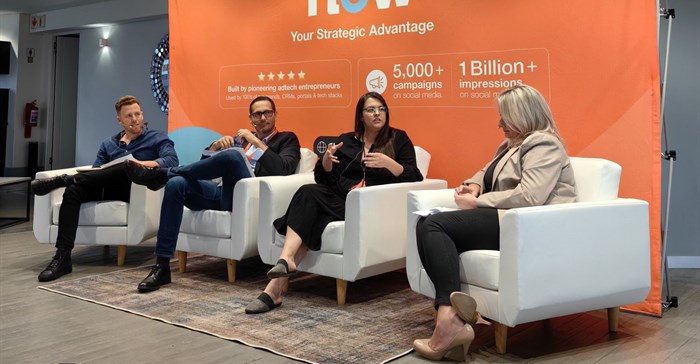Era of first-party data dawns as the data cookie crumbles

First-party data is information that companies collect directly from their customers. This can include purchase history, website behaviour, and loyalty programme participation.
While similar in concept to third-party data (aggregated from multiple sources), first-party data is considered more reliable, accurate, and ethically acquired.
“We created a privacy preserving data collaboration platform because we want to enable first party data owners to be able to monetise their data, and for businesses that can use those first party datasets to actually acquire it in a compliant and privacy compliant way,” explains Anton Grutzmacher, cofounder of Omnisient.
Why the panic?
The focus on first-party data is driven by the phasing out of third-party cookies. These little bits of code have long been used by advertisers to track users across the web.
However, the lack of transparency in their use and concerns around data privacy have led browsers like Google Chrome to announce plans to block them entirely.
“We have a range of clients all trying to grow the databases from a first party data perspective and ensuring that they future proof themselves because there is gonna be an impact when third party cookies disappear,” says Leila Byrne, digital lead at Meta Media.
“And I don't think that, when the discussions arose initially, there was a drive from a lot of companies. I think predominantly the issue with that was that there wasn't enough upskilling within agencies and within client bases to be able to answer that question or will even be able to make the adjustments from a business perspective.”
The shift has created a degree of panic amongst advertisers
Many brands, particularly smaller ones, are grappling to adapt and have been slow to improve their strategies regarding first-party data collection. While the transition may be daunting, it also presents significant opportunities.
Collaboration is key
The panel discussion hosted by Flow – a data-powered AdTech platform who provides access to first-party data audiences – agreed on a path forward for agencies.
To navigate this new world, collaboration is essential. This means businesses must work closely with agencies that have expertise in first-party data management and activation.
Brands should consider partnering with companies that have access to quality second-party data (obtained directly from another company with consumer consent).
Thorough testing and analysis will be crucial for measuring the success of different data sets.
Technology will play a vital role. Solutions that allow for the anonymisation of first-party data will be highly sought-after.
Anonymisation can enhance privacy while fostering collaborations, allowing data to be shared and matched without revealing personally identifiable information.
The changing digital landscape will certainly challenge businesses, but it also creates substantial opportunities.
Brands that prioritise their first-party collection strategies, embrace privacy-compliant data collaboration, and leverage the right technologies will be well-positioned for success in a cookieless future.

























